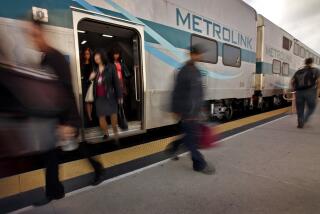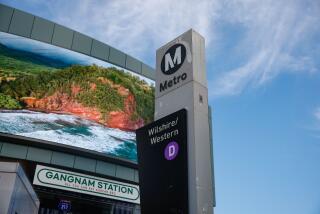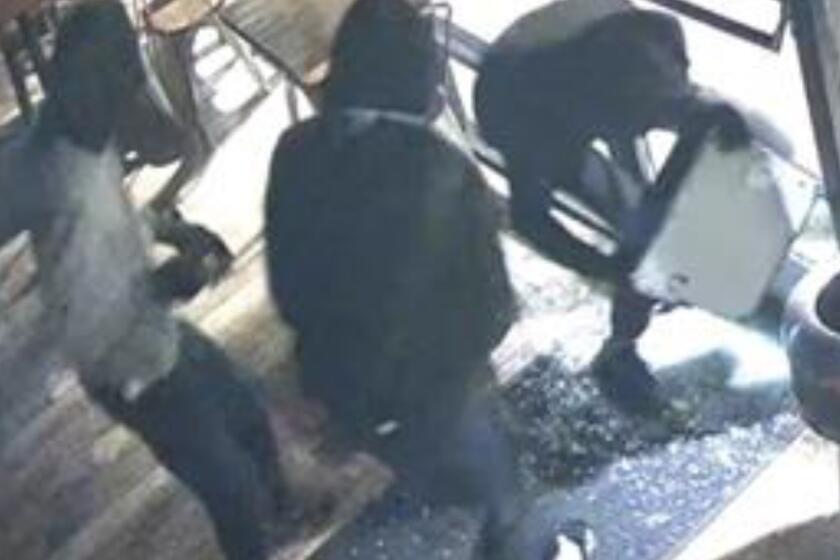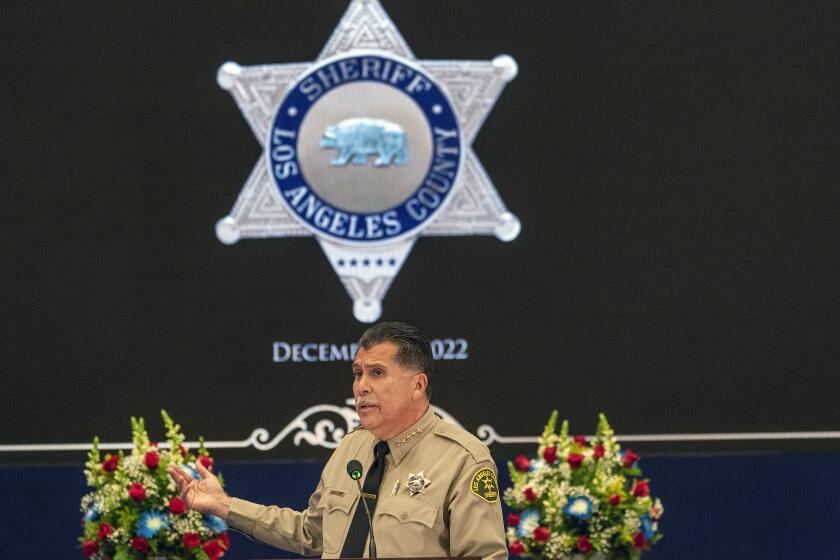No decision on Metrolink CEO’s possible ouster
Embattled Metrolink Chief Executive David Solow kept his job Friday, despite a closed session in which board directors discussed his possible termination.
Upon emerging from the 90-minute session, Solow told reporters, “There is no announcement,” and declined to comment further.
Solow has been under fire since Sept. 12, when a Metrolink train collided head-on with a Union Pacific freight train in Chatsworth, killing 25 people. He’s been accused of poor oversight of the contractors who run Metrolink’s commuter trains and criticized for his 2007 request to Congress that the implementation of new anti-collision technology be delayed because of the expense.
Thirty-eight passengers and crew members have died in four major Metrolink crashes since 2002 -- all during Solow’s tenure. Metrolink now has the worst safety record of all commuter railroads in the U.S.
The issue of Solow’s stewardship apparently came to a head this week when then-board President Ron Roberts placed an item on the agenda allowing the board to discipline or fire the CEO. The item was added at the eleventh hour, with the knowledge of Vice Chair Keith Millhouse.
On Friday, Millhouse assumed the chairmanship of the board, a move that had been previously scheduled. Millhouse declined to comment on the closed session but said he believes Metrolink needs to improve.
“There’s so much that needs to change,” Millhouse said. “My personal goal is to make Metrolink the safest commuter rail agency in the nation.”
Roberts could not be reached for comment.
A source with knowledge of the Metrolink board said that other board members were caught off-guard by the sudden push to remove Solow and thought it was better to discuss the issue another time.
Solow left New Jersey Transit to join Metrolink in 1990 and won the agency’s top job in 1998. He earns $220,000 a year.
Metrolink also announced Friday that the Federal Railroad Administration had given it permission to install automatic train stop devices at 43 locations along its tracks.
Such devices are an old technology used to ensure that engineers are alert. The devices trigger a signal in the cab of the locomotive that requires the engineer to respond. If the engineer doesn’t, the train is stopped.
The devices are not considered foolproof because they don’t necessarily prevent engineers from making mistakes. The Federal Railroad Administration last month urged Metrolink to continue pursuing a more advanced GPS-based system that tracks the locations of all trains on the tracks and has the ability to stop them before they collide. Metrolink officials say they hope to have that technology in place by 2012.
Also announced was that the delivery of 107 new rail cars with an improved design to survive crashes will be delayed from March until June.
More to Read
Start your day right
Sign up for Essential California for news, features and recommendations from the L.A. Times and beyond in your inbox six days a week.
You may occasionally receive promotional content from the Los Angeles Times.






